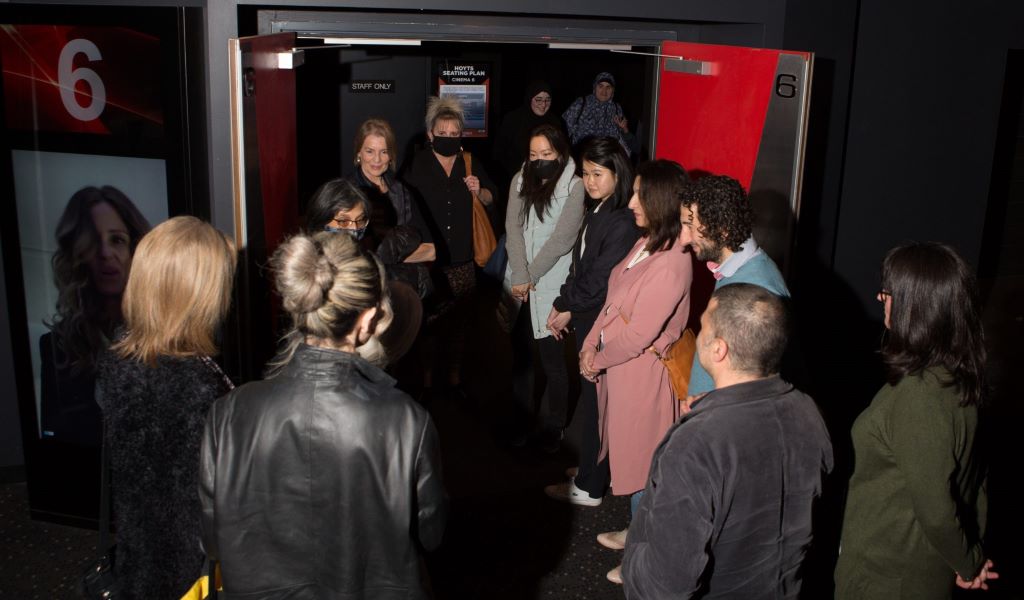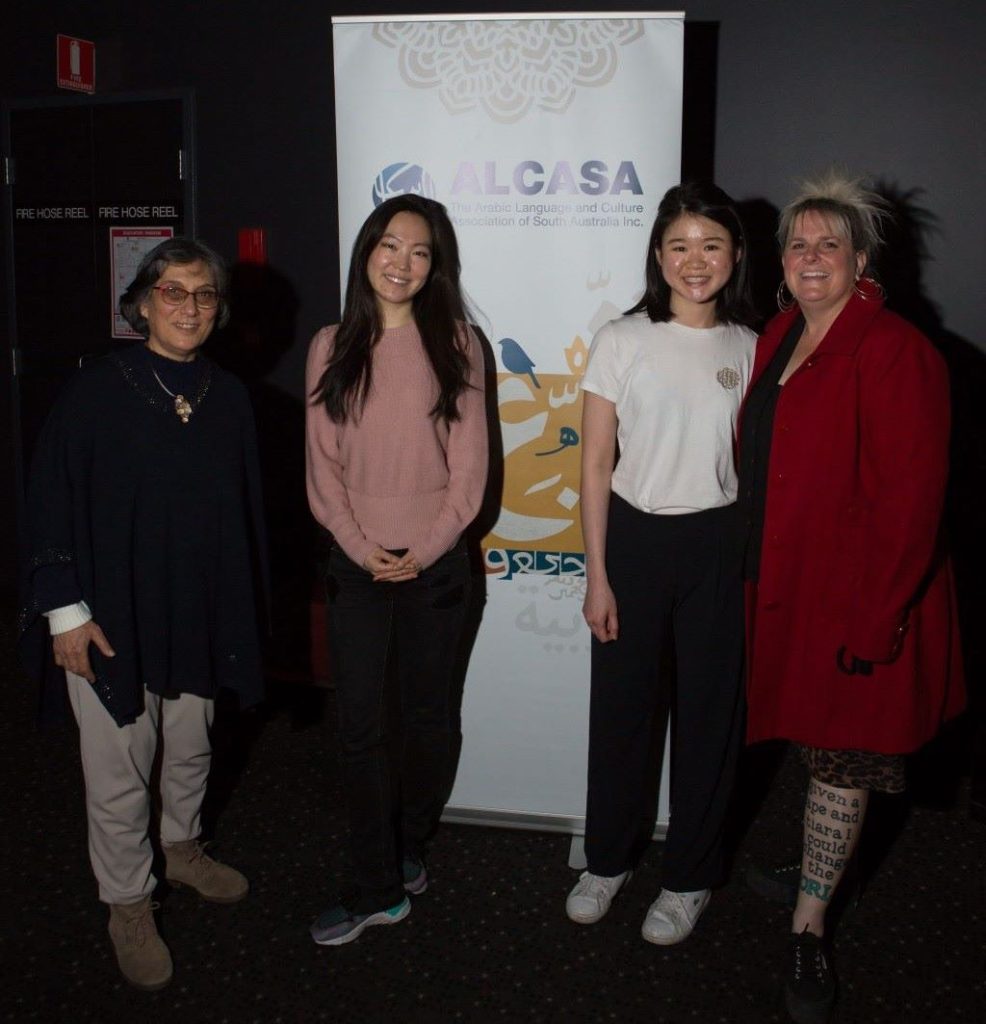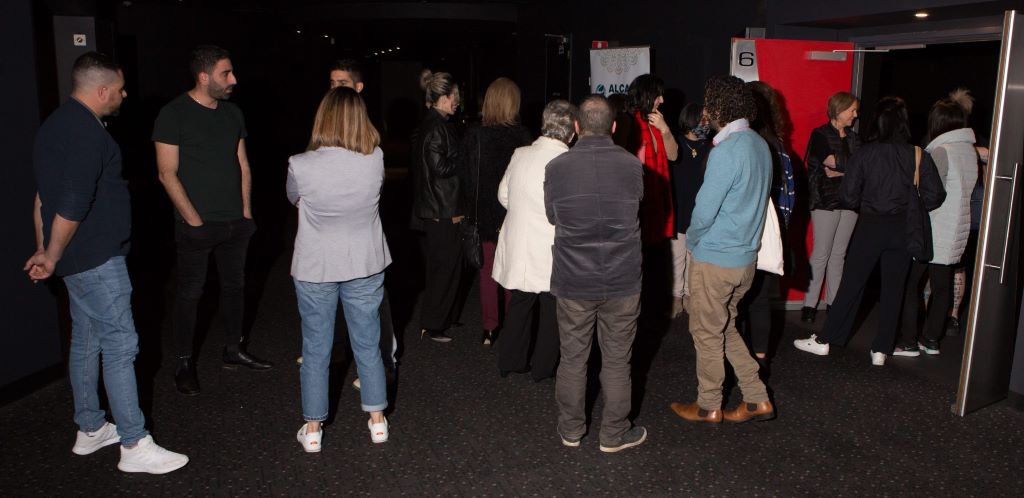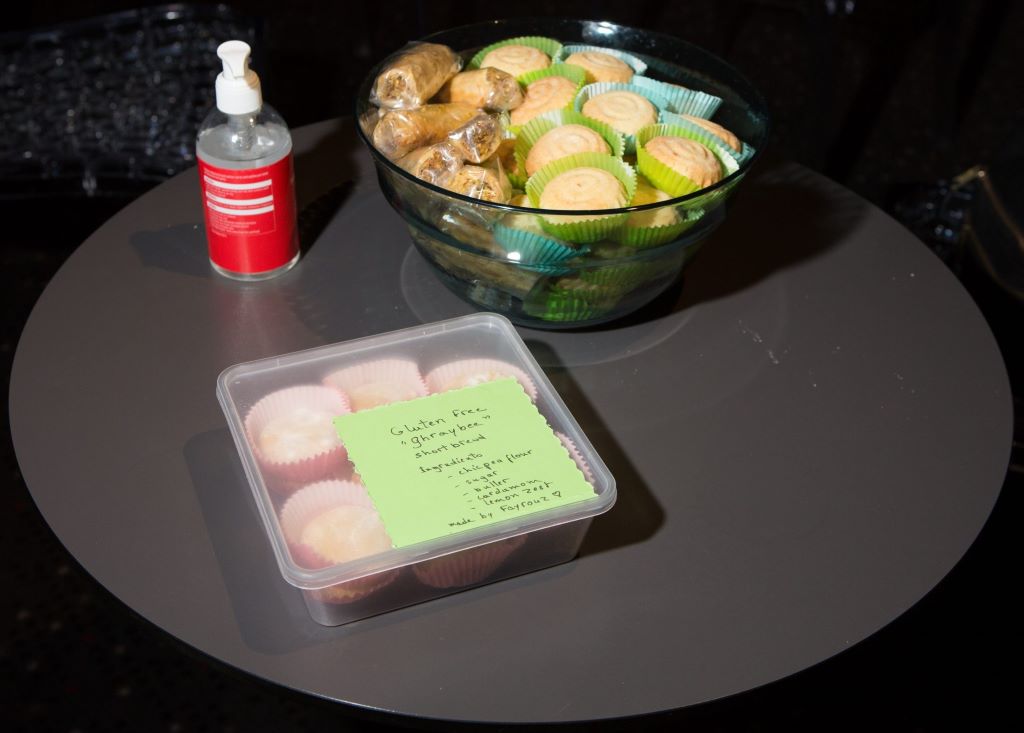
Meeting with the community after the movies
It has been two years since the Lebanese Film Festival was here in Adelaide. We were thrilled to finally showcase Lebanese art and culture to South Australian communities that we have been preparing from back in July 2022. In partnership with the Lebanese Film Festival, we supported the screening of three movies, Memory Box, C-Section, and Costa Brava, Lebanon, at HOYTS Norwood across the weekend. In particular, ALCASA held the screening of Costa Brava, Lebanon on Sunday, 25 September 2022, as part of a fundraising for ALCASA’s future activities and events for children.
Due to the pandemic, we missed having face-to-face events and gatherings in the last two years. This event allowed us to reconnect with people we have not seen from events before COVID, while making new connections who came to celebrate Arabic-speaking culture with an open mind. Despite the rainy and drizzly weather outside, the connections we’ve had made the afternoon warm and cozy. The relaxing ambience and comfortable seating in the cinema allowed us to lay back and wind down after a hectic week, with soul-soothing Lebanese snacks like Maamoul, Baklava, and gluten-free Ghraybeh.
The realistic portrayal of Lebanon in the films evoked a swirl of emotions: nostalgia, longing, and homesickness among the audience, reminding the Lebanese community members of their beloved home country. The three movies provided critical insight into the reality of Lebanese society, each tackling different social issues such as the aftermath of the civil war, social inequality, and garbage crisis. It was a great opportunity to educate and raise awareness of the wider South Australian public about the severity of issues faced in Lebanon, and a crucial time to bring these topics to the table.
As international students in South Australia, watching Costa Brava, Lebanon is eye-opening as a compelling domestic drama and an exquisite political allegory. Starring the two magnificent actors Saleh Bakri and Nadine Labaki, Mounia Akl tells a metaphorical story of individual people and their hopes, fears and desires, on the search for happiness in a tortured country among its existential struggle. By portraying the family dynamics and structure of the Badri family, it reflects the fissures in Lebanese society. It sheds light on the chronic garbage crisis and waste management in Lebanon that continues to haunt the country, who produces more than 2 million tons of trash per year with 94% buried in landfills and around 6% recycled.
However, Lebanon is not the only country that is suffering from environmental injustice and political corruption. Around the world, millions of vulnerable people are bearing the disproportionate and unequal burdens inflicted by self-serving elites. It is more than an environmental issue, but a political and social justice struggle.
You may ask, then, what can we do in the face of climate injustice? It is a wicked problem, and the biggest threat to the very survival of modern humanity. As individuals, it is more than normal to feel helpless and discouraged as we are all up to our necks in this. However, as shown in the movie, the individual action of Walid in the form of passive resistance has called upon collective action of the wider community to address the very trash and political corruption that is happening next to their house. These issues are to be tackled at the macro level by the community, and it all starts with one individual. Both individually and collectively, in the form of adaptation and mitigation strategies, we are building our capacity to respond to these issues. We, as the audience, are part of a bigger community, and there is a hope for us to be part of the systemic change.
Costa Brava, Lebanon is still around us. As social work students, we uphold the values of human rights and social justice, and this affects humanity as a whole. By nature, social issues are complicated in that we all play a part in contributing to them. Now more than ever, the result impacts all of us, especially the most disadvantaged and oppressed population. We believe in the power of community in resolving social issues, by promoting awareness, having hope and undertaking collective action underpinned by individuals.
To quote Greta Thunberg, “Hope is not passive. Hope is telling the truth. Hope is taking action. And hope always comes from the people.”
By Ann Miao Ng and Soyoo Park, Master of Social Work, University of South Australia: Justice & Society
Movie screening supported by the Multicultural Communities Council of South Australia (MCCSA) through the Community Connections Program.

Ann Miao and Soyoo with Amy, their UniSA supervisor, and Fayrouz

The discussions continue

Individually packaged yummy treats
SHARE
